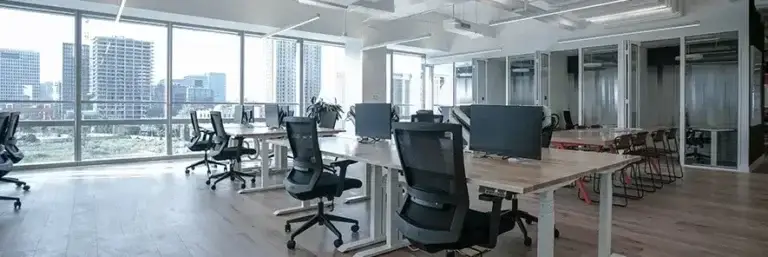Commercial Renovation and Addition Services in Central Florida

Why Invest in Commercial Renovations and Additions?
Key Benefits of Commercial Renovations:
- Enhanced Productivity:A well-designed workspace can boost employee morale and efficiency.
- Improved Customer Experience: Modern, inviting spaces leave a lasting impression on clients and customers.
- Increased Property Value: Strategic renovations and expansions can add significant value to your commercial property.
- Adaptability: Create flexible spaces that can grow with your business.
Our Commercial Renovation Services
Office Renovations
Transform your workspace into a hub of productivity and innovation. Our office renovation services include updating layouts, improving lighting, and incorporating modern design elements to create a more efficient and appealing environment.
- Open floor plans for collaboration
- Modernized breakrooms and meeting areas
- Enhanced lighting and technology integration
Retail Space Remodels
Attract more customers with a retail space designed to showcase your products and reflect your brand. We specialize in creating engaging, functional layouts for stores, boutiques, and showrooms.
- Custom displays and shelving
- Improved traffic flow
- Updated finishes and fixtures
Restaurant and Hospitality Renovations
Create a welcoming atmosphere that keeps customers coming back. Whether you’re updating a dining area or expanding your kitchen, our team delivers results that exceed expectations.
- Upgraded dining and bar areas
- Functional kitchen designs
- Compliance with health and safety codes
Commercial Additions to Support Your Growth
Types of Commercial Additions We Offer:
- Office Expansions: Add more desks, meeting rooms, or collaborative spaces.
- Warehouse Additions: Increase storage capacity and streamline operations.
- Customer Areas: Expand waiting rooms, dining areas, or retail floors.
Why Choose Coastal Construction Inc. for Renovations and Additions?
What Sets Us Apart?
- Experienced Team: With years of experience in commercial construction, we have the skills to tackle projects of any size or complexity.
- Customized Solutions: We work closely with you to design spaces that align with your business goals and branding.
- Attention to Detail: From planning to execution, we ensure every aspect of your renovation or addition meets the highest standards.
- Local Knowledge: As a Central Florida-based company, we understand the unique needs of businesses in this area.
Our Process for Commercial Renovations and Additions
Step 1: Consultation and Planning
We begin by understanding your goals, budget, and timeline. Our team works with you to develop a detailed plan that addresses your needs.
Step 2: Design and Approvals
Our experts create a design tailored to your specifications, ensuring compliance with all local building codes and regulations.
Step 3: Construction
With a clear plan in place, our skilled contractors get to work, minimizing disruptions to your operations while delivering quality results.
Step 4: Final Inspection
Once the project is complete, we conduct a thorough walkthrough to ensure your satisfaction with every detail.

Serving Businesses Across Central Florida
Explore Our Service Areas:
New Smyrna Beach
Modern renovations for local businesses.
Port Orange
Customized solutions for growing enterprises.
Daytona Beach
Transformative renovations for this bustling area.
Volusia County
Supporting businesses throughout the county.
Ocala and Gainesville
Expert additions and renovations for North Central Florida.
Let’s Build Your Vision Together
At Coastal Construction Inc., we’re not just remodeling spaces—we’re redefining how businesses operate and thrive. Visit our Commercial Services page to learn more about our full range of services.










